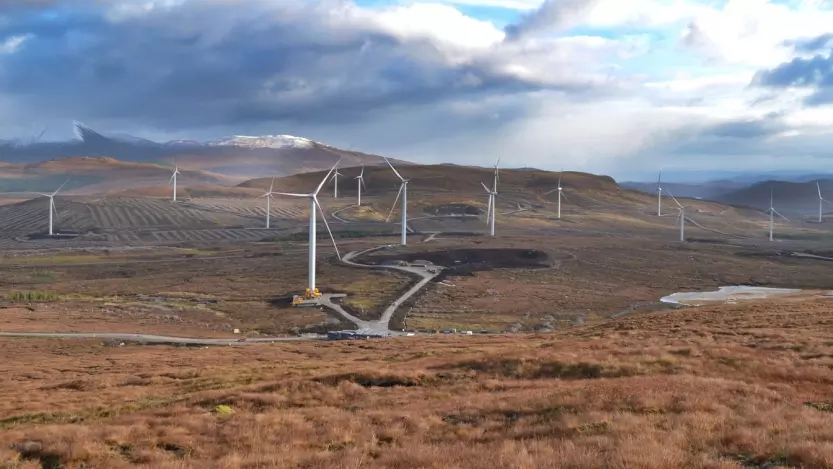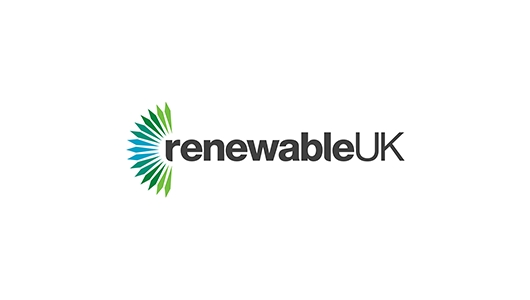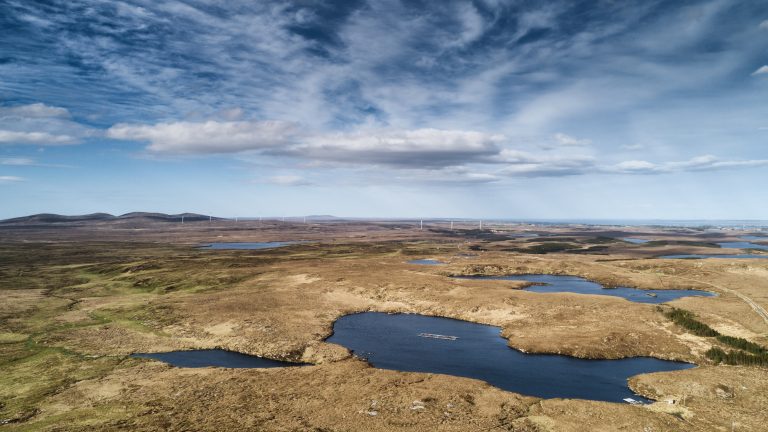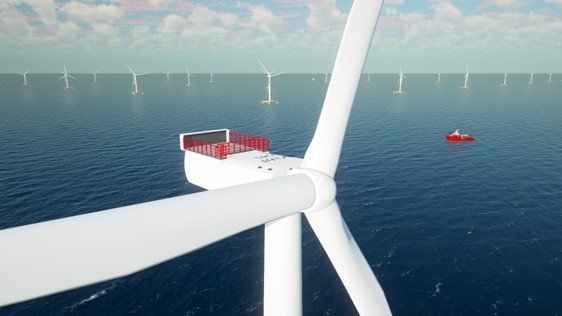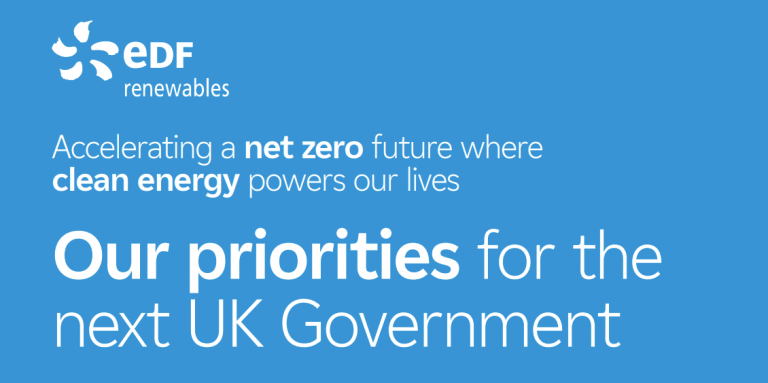
Onshore wind is our heritage at EDF Renewables and we now have a portfolio of 34 onshore wind farms – with more in the pipeline. Craig Duffy is the person responsible for overseeing this pipeline, and making sure that any onshore wind projects we develop can find a route to market and come with minimal risks. Read on to find out more about Craig’s career path to EDF Renewables and what motivates him every day at work.
Day-to-day working life in renewables
Q. Where are you right now?
A. Like many people, I’ve been based at home for the last year or so, which for me is in Cupar, up in the North East of Scotland, in the Kingdom of Fife. More recently though, I have been enjoying getting back to the Edinburgh office and seeing people face-to-face. My aim is to split my time about 50:50 between home and office, which is about the balance I’ve been striking in recent weeks.
Q. What does your job as Head of Onshore Wind involve?
A. Together with my team it is our role to take our onshore wind projects from the point of achieving planning approval through to an investment decision. So we spend a lot of time de-risking projects and getting them to the stage where we can confidently look to secure a route to market. By the time they’ve been through the process, there needs to be a clear business case so our management and investment teams are happy it’s a project we want to go ahead and build.
Q. How many people are in your team?
A. I currently manage a team of five people, but we’re hoping to increase this to six or seven as we grow our portfolio of onshore wind projects.
Q. What’s the biggest challenge in your role?
A. The biggest challenge for onshore wind is finding a route to market. But now the Contracts for Difference (CfD) auctions are inviting bids from onshore wind again, it’s given the sector – and the supply chains it supports – a lot more confidence. There’s far more positivity now and people are championing the sector more than ever before.
Q. What’s a typical day like?
A. There’s a lot of meetings to support our strategy and decision-making. These can be with my team – adding value, guidance or support, where I can; the wider project teams across the organisation; or the senior management team to keep them updated on the progress of our projects.
Developing a career in the renewables industry
Q. What did you do prior to your current role at EDF Renewables?
A. I worked in the Strategy & Analysis (S&A) team at EDF Renewables for several years. Most recently, I was responsible for valuations and investment appraisals for new projects and acquisitions. I did a lot of financial modelling and competitor analysis.
Prior to this, I spent 18 months on the NnG Offshore Wind farm project. My role was project finance manager, and I was responsible for raising the debt financing. I’d worked on the acquisition of the project while in the S&A team, so it made sense to move over and work on the project full time when the time was right.
Before this, during my early days in S&A, I was involved in various strategic initiatives alongside my financial modelling work. These included an onshore wind strategy review; helping to put the industrial and commercial (I&C) solar proposition together; and undertaking a market entry study for Ireland. I went on to support the implementation in Ireland – and this recently came ‘full circle’ when I supported on the Wexford transaction and investment decisions; one of my final acts before moving on from S&A! I got to see a real variety of projects working across different parts of the organisation, which stood me in good stead for this role.
Q. What’s your background?
A. I’m a banker by trade. I joined Royal Bank of Scotland in late 2007… just before the big financial crash in 2008. So perhaps not the best time to start a career in banking, but I believe that you learn more when things are difficult, and that was certainly the case back then!
I enjoyed the variety of banking: I worked across lots of different clients and sectors – such as oil and gas, retail, hotels, manufacturing, you name it! And the level of learnings from looking at lots of different sectors and meeting different types of management teams and customers was really useful.
I left banking when I was ready for a new challenge, and went to work for Ernst & Young. We reviewed and built financial models for debt finance transactions and this gave me my first taste of renewables, as I worked a lot on transaction modelling for renewables projects around the world.
I joined EDF Renewables in 2017… again at a time when an industry was going through a tough patch! The Renewables Obligation scheme had just closed and the CfD auctions no longer included support for onshore wind projects. But it’s since forced the sector to find new ways to build revenue streams with corporates. It’s been challenging – but we’ve had to be creative and ask questions of projects. This has made us much stronger and our projects more robust.
Diversity and inclusion in the renewables industry
Q. Do you think the industry could do more to promote diversity and inclusion?
A. I would like to say it’s better than the banking sector, but I’m not entirely convinced, if I’m honest. What’s positive about the industry though is the rate of growth it has – and the variety and types of roles companies will need – because this helps to create a more diverse and inclusive workforce.
I fully believe we’re richer for having diverse opinions and views – and I’m not just talking about areas of diversity, like gender equality or race, where we know we could all do a lot more. But by diversity, I also mean diversity of characteristics, opinions and experience.
Working in renewables gives you real exposure to people with different types of professions and backgrounds. I sit in the office next to a lawyer, an engineer, and an accountant… and that variety helps to drive the overall diversity and inclusion agenda too. It exposes our people to a greater diversity of disciplines – which they might not otherwise have explored – and makes it easier to move around and try different roles.
Q. What’s your favourite part of your job?
A. I really enjoy the people part of my role: spending time talking to my teams and understanding where I can help or support them in their jobs. I live by the mantra that the best thing you can do is put yourself out of a job by coaching or developing people to take on your role.
Q. And what about your least?
A. That I can’t dedicate as much time as I’d like to helping my team grow and develop!
The future of renewables
Q. What impact has Covid-19 had on the industry?
A. Undoubtedly, there have been some impacts of Covid – like delays to projects – and we’ve all had to adapt to working virtually. But has it really been a big issue? No, not really – I think the industry has shown tremendous resilience. And more than anything, the pandemic has shown us that renewables is a hugely important sector. We’re facing one of the biggest global challenges ever in climate change, and renewables is one of the key solutions we have to halt the rise in global temperatures.
Q. How is your role helping to create a net zero future?
A. With my role, there’s a clear, tangible end goal: we’re trying to build new projects that will help the UK government meet its net zero targets. We’re putting turbines in the ground and taking decisions to move forward with projects that will add green electricity to the grid to help us reach net zero. This makes my job really rewarding.
Q. What do you see for the future of renewables?
A. I’d really like us to have a planning system in place which fully recognises the priority of delivering net zero and allows us to be at the forefront globally in deploying the latest and largest turbines. This is one of the areas that really excites me.
Also, I’d really like us to be able to find solutions to some of the problems we have with connecting renewables to the grid. The sort of innovations we’re seeing in energy storage and hydrogen are exciting because they will overcome some of these challenges and help us get to net zero. So I expect to see more of these underpinning our projects in the future.
Q. What would you say to one of your children if they were interested in a career in renewables?
A. I’d always encourage my children to do whatever they want to do. But what I think they’ll find is regardless of what type of job they want to pursue – be it creative, financial or whatever – there’ll be a job in the renewables sector doing this.
The need to reach net zero means that the renewables industry – and the offshoots of renewables – are going to be a significant driver of jobs. And these won’t just be any jobs… they’ll be interesting and fulfilling jobs!


